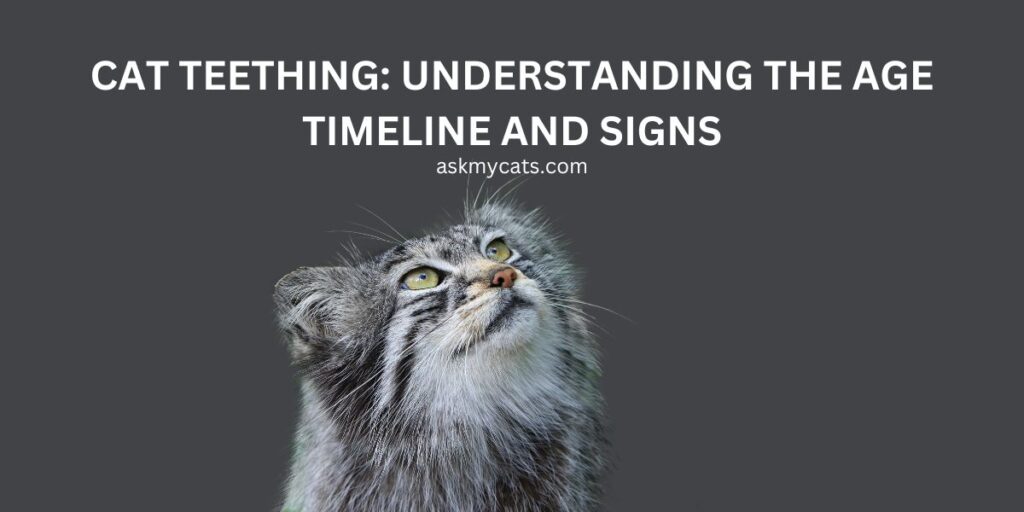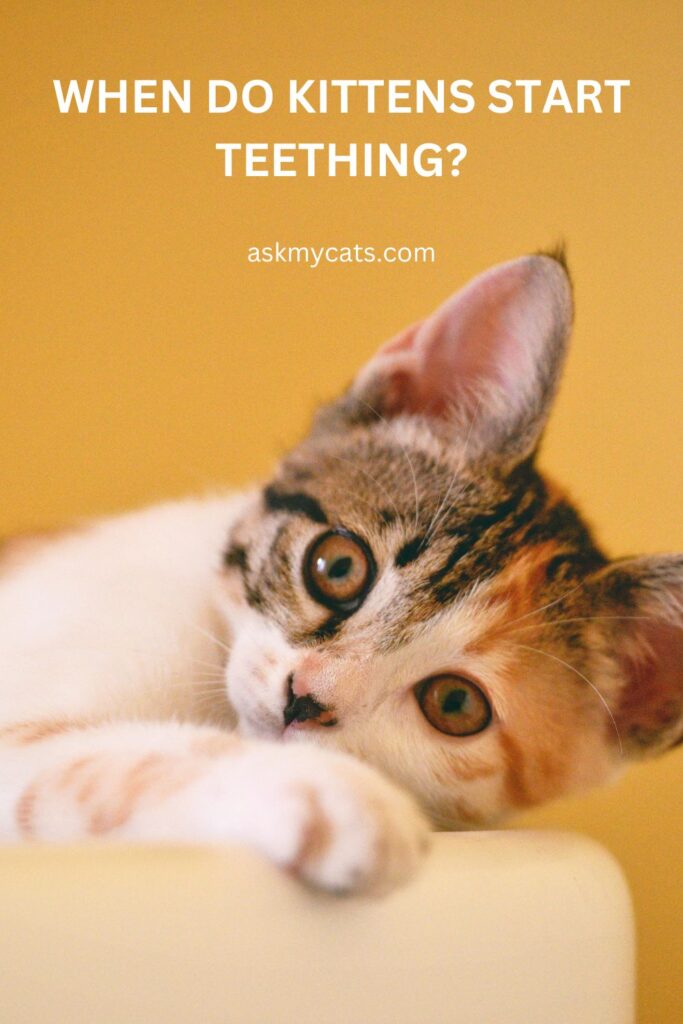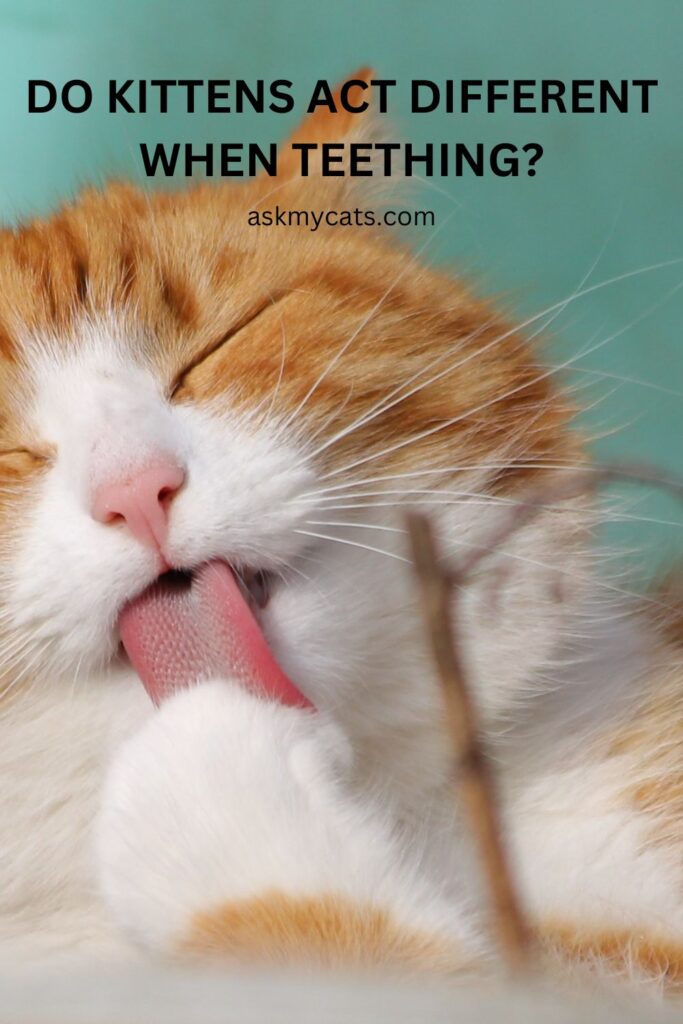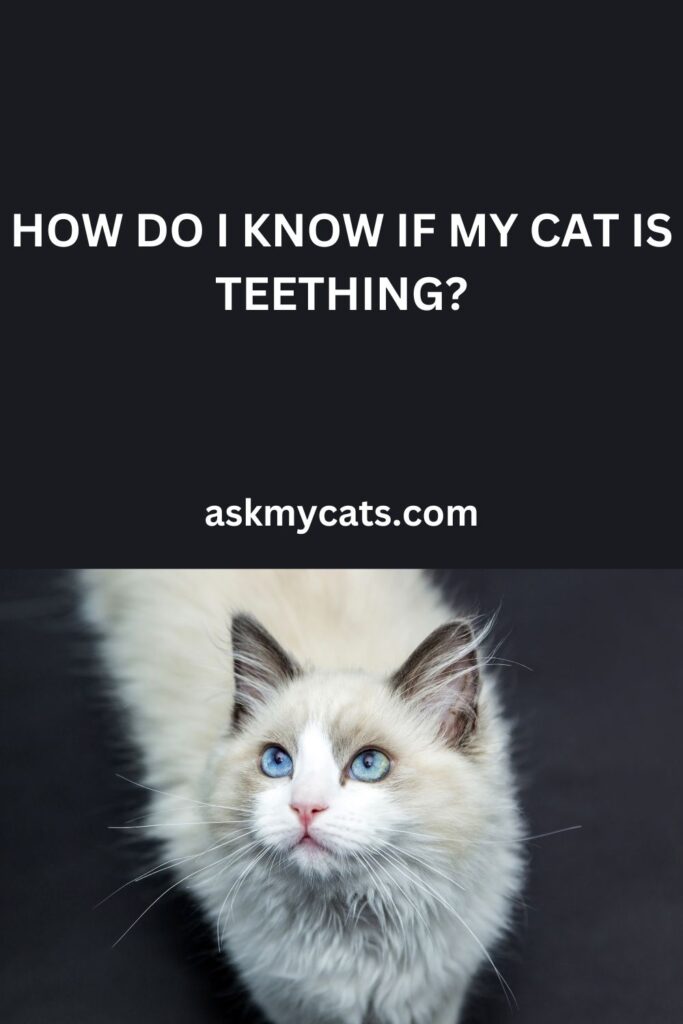Bringing home a new kitten is an exciting experience, but it also comes with various stages of development, including teething.
Just like human babies, kittens go through a teething process as they transition from their baby teeth to their adult teeth.
In this article, we will explore the age timeline of cat teething, the signs to look out for, and how to ensure your furry friend’s dental health during this crucial stage.
Key Takeaways
- Kittens start teething around 2-3 weeks old, with the process lasting 2-6 weeks.
- The second phase of teething begins at 3-4 months old, with adult teeth erupting over 2-3 months.
- Regular veterinary check-ups and a balanced diet are important for oral health.
- Kittens may exhibit behavior changes during teething, such as increased chewing, excessive drooling, irritability, and decreased appetite.
- Adult cats may not display noticeable signs of teething but can still experience dental issues.


Give Your Cat the Perfect Day
Get the Free Ebook!
When Do Kittens Start Teething?

The age timeline of cat teething is an important aspect to understand as a cat owner. Kittens start their teething process at a very young age, usually around 2-3 weeks old.
It is during this time that their deciduous teeth, also known as baby teeth, begin to emerge. This initial teething phase lasts for approximately 2-6 weeks.
As kittens continue to grow, the second phase of teething begins when they are around 3 to 4 months old. This phase involves the eruption of their permanent adult teeth.
It takes around 2-3 months for all the adult teeth to fully come in. By the time a kitten reaches 6 months of age, they should have their complete set of 30 adult teeth.
During the teething process, it is important to provide appropriate chew toys and objects for your kitten to gnaw on. This not only helps alleviate their discomfort but also helps promote healthy dental development.
Additionally, regular veterinary check-ups and a balanced diet play crucial roles in ensuring the overall oral health of your kitten during this teething phase.
Understanding the age timeline of cat teething allows you to provide the necessary care and support to your kitten as they go through this natural and essential process of dental development.
Age Timeline Chart For Kitten Teething
Here’s a kitten teething age chart that outlines the general timeline for the teething process:
| Age (in weeks) | Teething Stage |
| 2-3 weeks | Deciduous teeth (baby teeth) start to emerge |
| 4-6 weeks | Deciduous teeth fully erupt |
| 12-16 weeks | Permanent adult teeth start to erupt |
| 6 months | All 30 adult teeth should be present |
Please keep in mind that individual kittens may have slight variations in their teething timeline.
It’s essential to monitor your kitten’s development and consult with a veterinarian for personalized advice and guidance throughout the teething process.
Interesting Read: Do Kittens Bite When Teething?
Do Kittens Act Different When Teething?

Yes, kittens can exhibit different behaviors when they are teething. The discomfort and pain associated with the teething process can cause them to act differently than usual.
Here are some common changes in behavior you may observe in teething kittens:
- Increased Chewing: Kittens may chew on objects more frequently when they are teething. This behavior helps to alleviate the discomfort in their mouths. You might notice them chewing on their toys, household items, or even your fingers. Providing appropriate chew toys can help redirect their chewing behavior to suitable items.
- Excessive Drooling: Teething kittens may drool more than usual. The excess saliva is their way of soothing the discomfort in their mouths. You may notice wet spots on their toys or around the areas where they rest.
- Irritability and Restlessness: Some kittens may become more irritable or restless during the teething process. The discomfort they experience can make them more sensitive to touch or handling. They may exhibit signs of discomfort, such as whining or being less tolerant of cuddling.
- Decreased Appetite: In some cases, teething kittens may show a temporary decrease in appetite. The soreness and sensitivity in their mouths can make it uncomfortable for them to eat. Ensuring they have access to soft and easily chewable food, or even wetting their dry food to soften it, can help encourage them to eat during this period.
- More Frequent Pawing at the Mouth: Teething kittens may paw at their mouths more often as they try to alleviate the discomfort. They may rub their paws against their face or mouth area to find relief.
It’s important to note that not all kittens will exhibit the same behaviors during teething, and the severity of discomfort can vary among individuals.
If you notice excessive bleeding, refusal to eat, or any other concerning symptoms, it’s advisable to consult with a veterinarian for guidance and appropriate care.
Interesting Read: Tips On How to Help a Teething Kitten
How Do I Know If My Cat Is Teething?

Teething can be uncomfortable for kittens, leading to certain behaviors and signs. Increased chewing is a common indicator of teething, as kittens seek relief by gnawing on objects. You may notice them nibbling on toys, furniture, or even your fingers.
Another sign is excessive drooling, which is their way of soothing the discomfort in their mouths. Keep in mind that adult cats may not display noticeable signs of teething but can still experience dental issues as they age.
To determine if your kitten is going through the teething process, observe their behavior closely. If you notice an increase in chewing activities, particularly around objects that are safe for them to bite on, it’s likely a sign of teething.
Excessive drooling is another telltale sign. For adult cats, keep an eye out for any dental problems, such as broken or loose teeth, discolored teeth, or swelling around the face and mouth area.
Check Out: DIY Homemade Kitten Teething Toys
How Long Does The Teething Stage Last In Cats?
The teething stage in cats can last for a few months as their baby teeth are replaced by their permanent adult teeth.
Here is a general timeline of how long the teething stage lasts in cats:
- Baby Teeth (Deciduous Teeth): Kittens start teething at around 2-3 weeks of age when their baby teeth begin to emerge. The process of their baby teeth fully erupting typically takes about 2-6 weeks.
- Adult Teeth: Around 3 to 4 months of age, the permanent adult teeth of kittens begin to erupt. This phase of teething usually lasts for approximately 2-3 months.
By the time a kitten reaches 6 months of age, they should have their complete set of 30 adult teeth. It’s important to note that individual cats may have slight variations in their teething timeline, but the general duration remains within these ranges.
Interesting Read: The Importance of Teething Toys for Kittens
Frequently Asked Questions
Can I use human teething remedies for my cat?
It is not recommended to use human teething remedies for cats without veterinary guidance. Consult with a veterinarian for appropriate and safe options.
How can I care for my cat’s teeth during teething?
Offer suitable chew toys, maintain regular veterinary check-ups, and consider dental hygiene practices recommended by your veterinarian.
When should I be concerned about my cat’s teething?
If you notice excessive bleeding, refusal to eat, or any other concerning symptoms, consult with a veterinarian for appropriate care and guidance.
Final Words
Understanding the age timeline and signs of cat teething is essential for every cat owner. By being aware of the teething process, you can provide your kitten with the necessary support and care during this sometimes challenging stage.
Remember to observe their behavior, provide appropriate teething toys, and consult your veterinarian if you have any concerns. With your attentive care, your feline companion will transition smoothly into adulthood with a healthy set of teeth.
Must Read: How to Brush a Cat’s Teeth: Step-by-Step Guide
